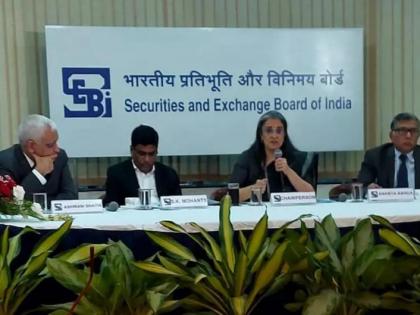What Does SEBI Do?: Everything You Need to Know About the Regulatory Body
By Lokmat English Desk | Updated: August 12, 2024 15:32 IST2024-08-12T15:32:06+5:302024-08-12T15:32:27+5:30
American short-seller Hindenburg Research has released a new report alleging financial connections between the Adani Group and SBI Chief ...

What Does SEBI Do?: Everything You Need to Know About the Regulatory Body
American short-seller Hindenburg Research has released a new report alleging financial connections between the Adani Group and SBI Chief Madhabi Puri-Buch. Madhabi Puri-Buch has denied these allegations. The report has introduced a new issue for the opposition to leverage against the central government. In light of these developments, many are now questioning what the CBI is and how it operates.
SEBI oversees the stock market.
The Securities and Exchange Board of India (SEBI) is the leading regulatory authority for the Indian stock and securities markets. Established by the Government of India on April 12, 1988, SEBI's primary mission is to safeguard investor interests while ensuring transparency and efficiency in trading. It was granted legal authority and autonomy on January 30, 1992. SEBI is headquartered in Mumbai and has regional offices in Delhi, Chennai, Kolkata, and Ahmedabad.
The Chairman of SEBI is appointed by the Government of India and serves as the senior-most official, overseeing all functions and policies of the Board. The SEBI Board also includes 3 to 5 full-time members responsible for various duties, including regulating financial markets. Additionally, SEBI has two nominated members from the Finance Ministry and the Reserve Bank of India.
Role of SEBI
The Indian stock market made history before the Lok Sabha elections by joining the $5 trillion club for the first time, with expectations that India might soon become the world's largest stock market. SEBI’s primary role is to protect investor interests. It has the authority to establish rules and regulations, aiming to prevent manipulation and fraud within the capital markets. SEBI is responsible for registering mutual fund securities and overseeing their operations. Additionally, it plays a crucial role in the listing process for new companies.
Hindenburg's Allegations
Hindenburg Research has accused the Adani Group of having financial interests with SEBI officials. The firm cites confidential documents suggesting that the SEBI Chairman had investments in offshore entities linked to the Adani scandal. According to the report, Madhabi Puri-Buch and her husband, Dhaval Butch, opened an account with IPE Plus Fund 1 in Singapore on June 5, 2015, with an investment totaling $10 million. The report also alleges that an offshore Mauritius Fund, set up by an Adani Group director through India Infoline, was registered in Mauritius, a known tax haven.
The couple denied the allegations.
The Butchs have denied the allegations made by Hindenburg. Butch said he invested in IPE Plus Fund 1 managed by 360 One Asset & Wealth Management (formerly IIFL Wealth Management) in 2015. The investment was made while he was living as a private citizen in Singapore and two years before Madhabi Buch joined Sebi as a full-time member. The allegations made in the Hindenburg report are baseless and have no substance.
Adani Group Denies Allegations
The Adani Group has responded to the recent Hindenburg Research report, categorically denying all allegations. The Group described the claims as false and a "distortion of facts." In their statement, the Adani Group rejected the allegations as attempts to defame them, asserting that previous claims have been thoroughly investigated and found to be entirely baseless.